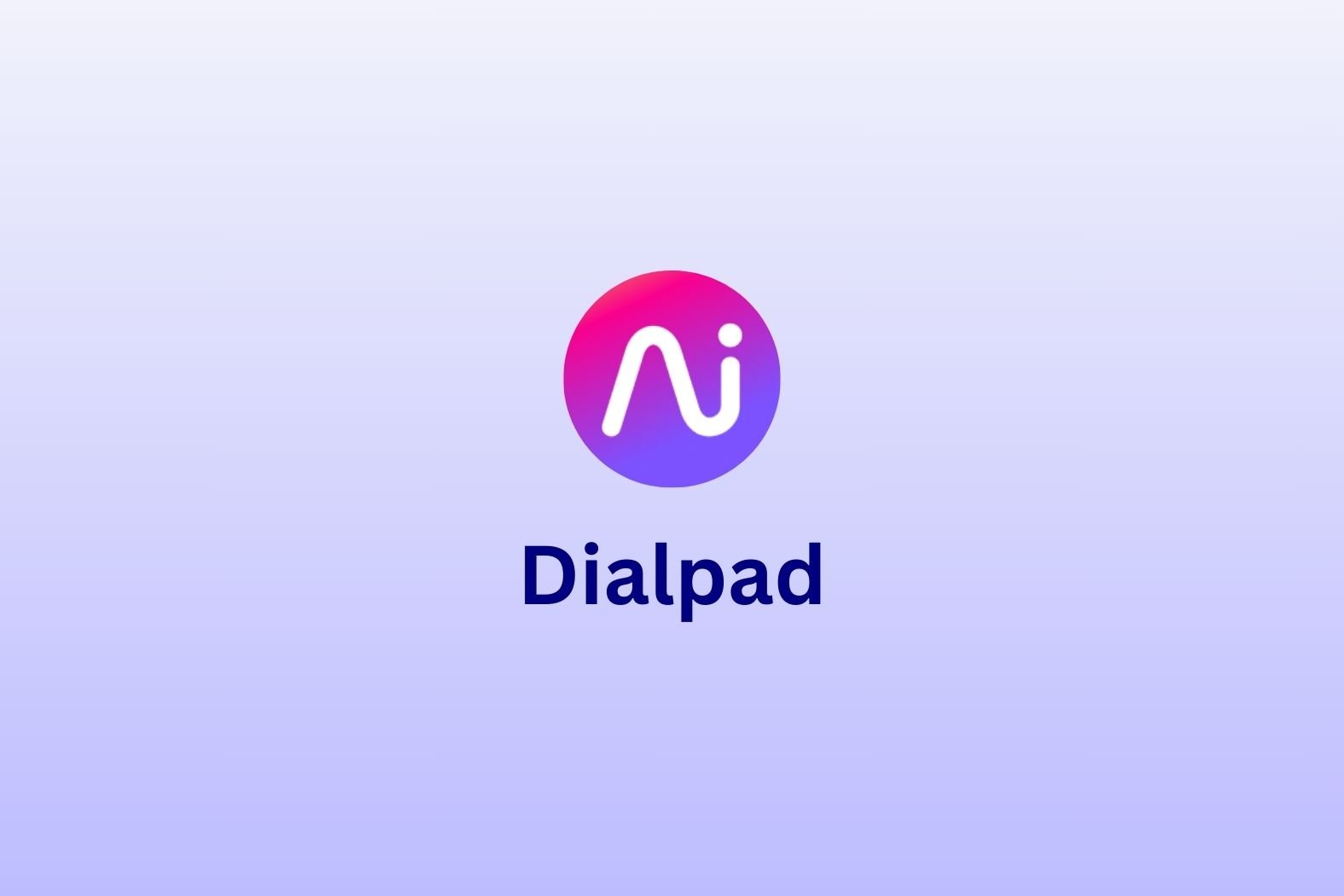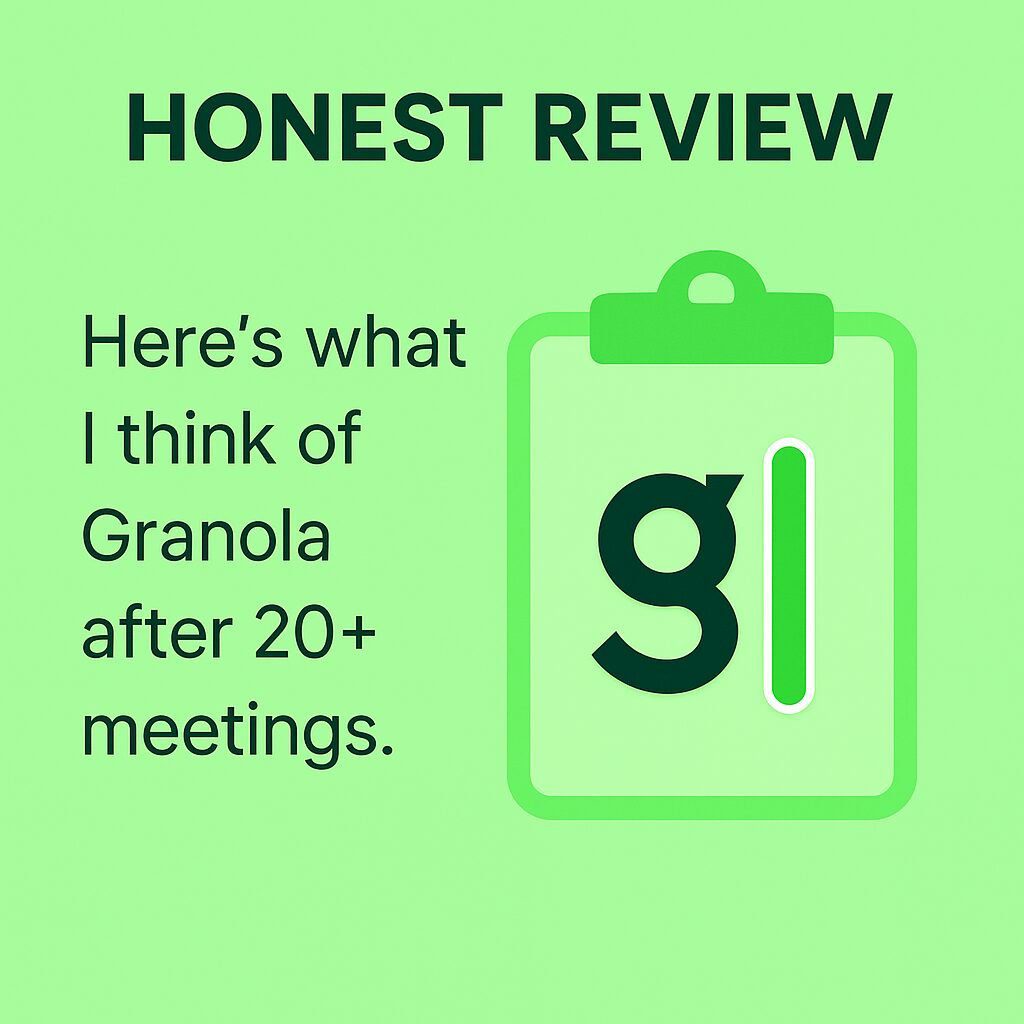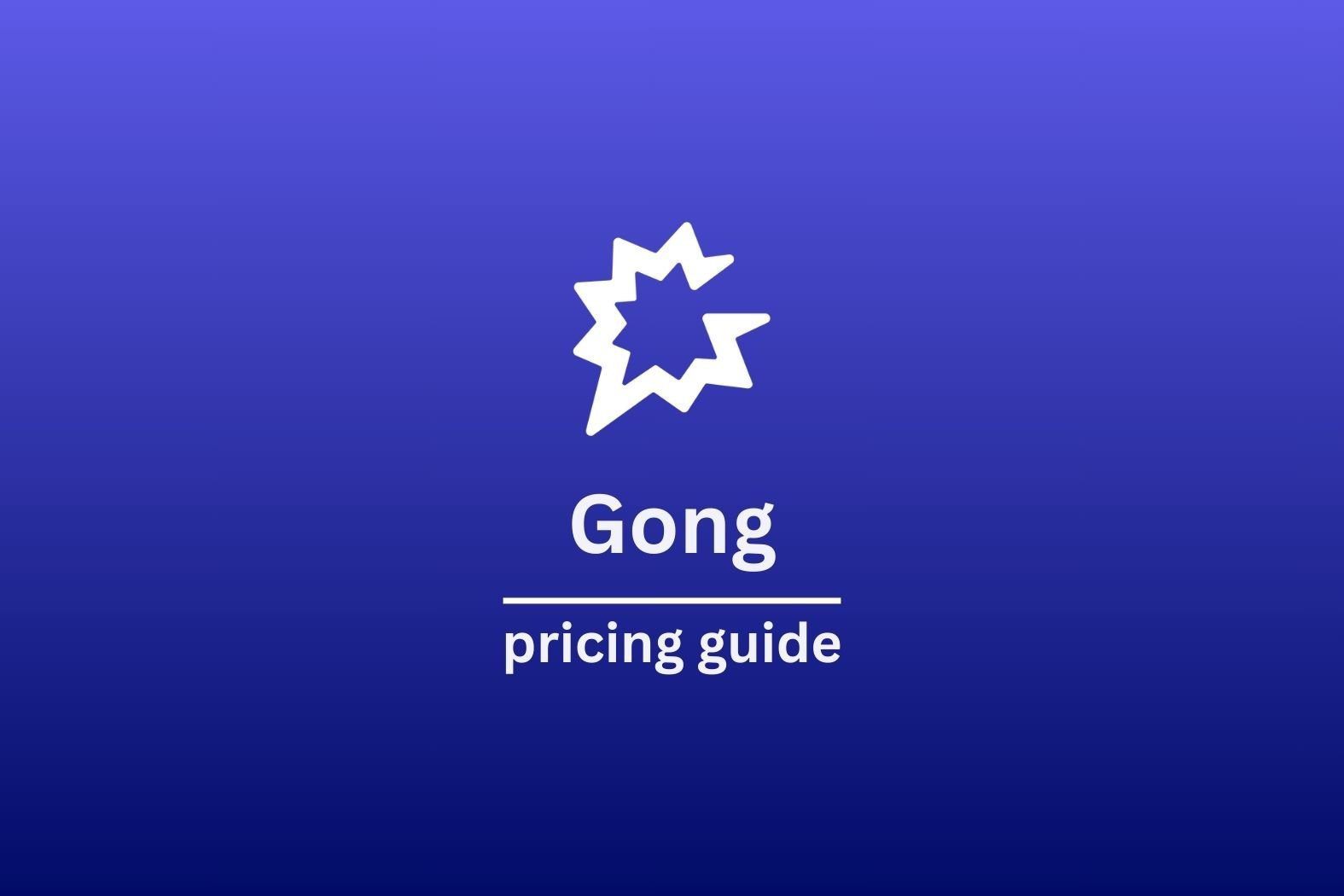Dialpad is a great platform for customer-facing teams. From CS to Sales, it helps clarify communication, streamline onboarding, and enhance internal coaching. However, there are lots of Dialpad alternatives that operate in a similar manner – some of which might just give you more bang for your buck.
Before we dive into all the alternatives to Dialpad, let’s take a deeper look at what Dialpad actually is and how it helps your organization.
What is Dialpad?
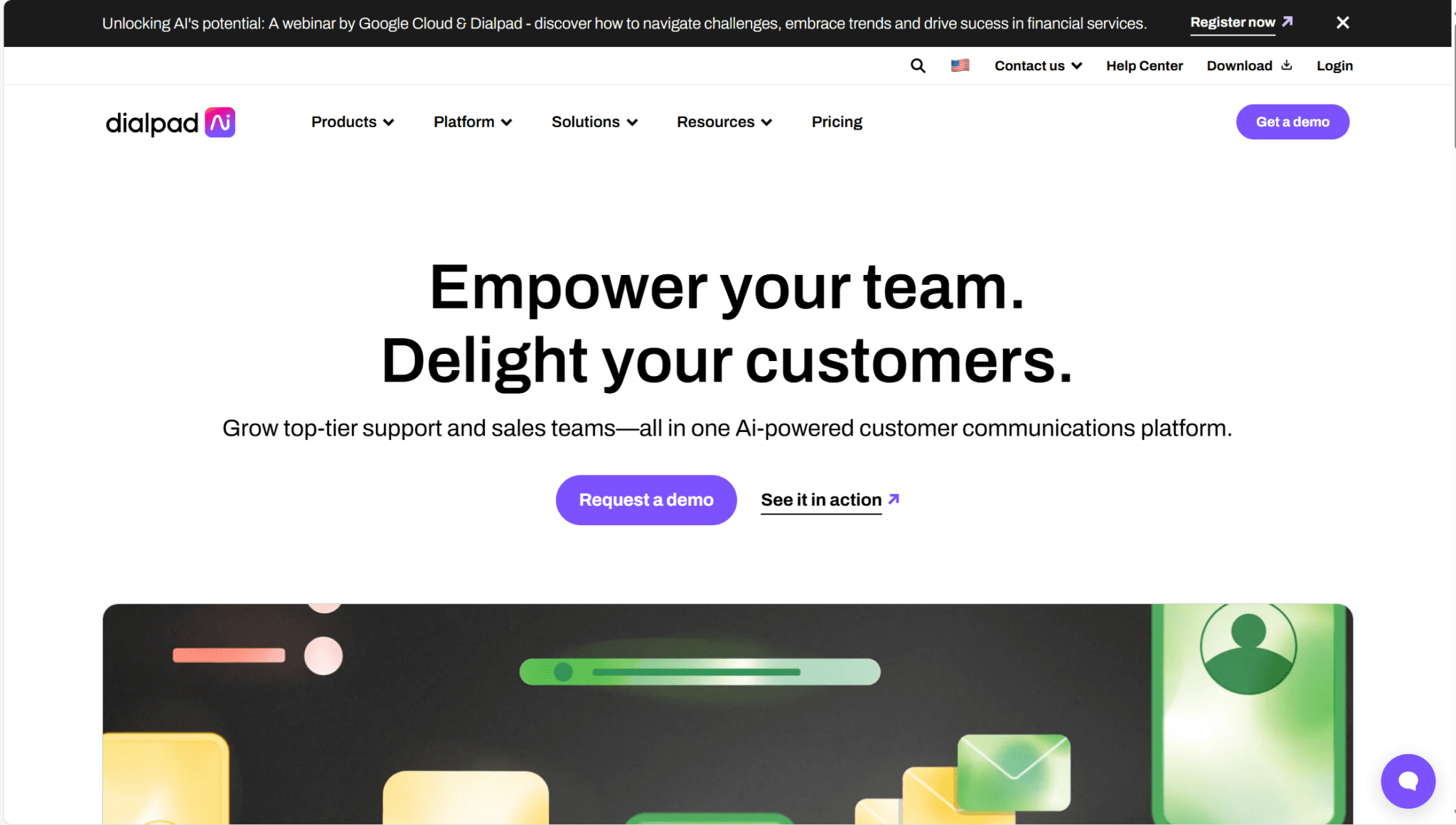
Dialpad is a platform you can use to improve your support and sales teams. It has three primary solutions:
- Dialpad Connect. A comprehensive customer communication platform with an AI that takes notes, delivers insights, and helps your team stay productive.
- Dialpad Support. A cloud-based support and contact center solution with AI that accelerates onboarding, simplifies coaching, and delights customers.
- Dialpad Sell. A cloud-based sales outreach solution with AI that automates playbooks, gives in-call coaching, and helps your team win.
Dialpad’s set-up nicely differentiates its use cases, empowering you to be more organized from the get-go.
The Dialpad app works on desktop and mobile devices, allowing your team to send and receive calls from anywhere. It works with dialers for cold calls (unlimited domestic calling), and video conferencing platforms for those warmer interactions.
With Dialpad Sell, you can monitor sales playbooks to see whether your reps are adhering to them or not. This is great for sales training, as you can guide your reps to make sure they hit specific points in every sales call. It also helps sales managers switch up their tactics and adjust the playbook if something isn’t working.
Dialpad’s paid subscriptions can be a bit confusing. As mentioned earlier, they are set up as three separate solutions in one. As such, there are separate tiers depending on whether you want to be part of Dialpad Connect, Dialpad Support, or Dialpad Sell. However, there is also Dialpad Meetings, which is more of an AI meeting assistant without any of the additional features.
This confusing price structure may be one of the reasons people are looking for Dialpad alternatives. For example, if you want to mix and match different features from different sections of Dialpad, you’re going to encounter problems.
Dialpad Pros
- Unlimited Domestic Calling. Dialpad gives users unlimited calls within their country.
- Ease of Use. Dialpad is often praised for its simple UI. Teams can easily adapt without extensive training.
- Unified Communications. Dialpad combines voice, video, SMS, and instant messaging into a single platform, reducing the need for multiple tools.
- Quality Integrations. Dialpad integrates with lots of popular documentation tools and CRMs.
- Call From Anywhere. With both a desktop app and mobile app, users can take and receive calls from anywhere.
- Real-Time Transcription. Dialpad’s real-time transcription is excellent for teams that prioritize instant transcription access.
- Sentiment Analysis. Dialpad analyzes user sentiment to help you make data-backed decisions.
Dialpad Cons
- Confusing Pricing Structure. There are four separate types of plans, each with two or three tiers, making a grand total of eleven (11) plans. It can be overwhelming to decide which one you need.
- Occasional Call Quality Issues. Some users report occasional call drops or degraded audio quality at certain times.
- Weak Customer Service. Many users report the customer service being difficult to find or slow in responding.
- Advanced Features Have a Learning Curve. Dialpad’s advanced features might be a little too complex for small businesses.
- Inaccurate Transcripts. Dialpad isn’t known for having the best transcript accuracy on the market.
Pricing
Dialpad’s pricing structure is enough to make your head spin. It’s split in the following way: Dialpad Connect, Dialpad Meetings, Dialpad Support, and Dialpad Sell. You can only pick one.
Then, each of these Dialpad solutions is broken into tiers. And just to make things even more confusing, they’re almost all given different names. All prices listed below will be per user, per month, when billed annually.
Dialpad Connect
For Dialpad Connect, you have Standard ($15), Pro ($25), and Enterprise (contact a sales rep). These plans unlock unlimited calling, voicemail transcriptions, AI meetings, basic Google and Microsoft integrations (in Standard) and CRM integrations (in Pro), real-time analytics and reporting, and more.
Dialpad Meetings
In Dialpad Meetings, you get two tiers: Free ($0) and Business ($15). The Free plan allows you to host up to 10 participants for up to 45 minutes at a time. You’ll also get unlimited audio recording. The Business plan lets you host up to 150 people for up to 5 hours. This gives you AI meeting transcriptions, automatic action item capture, automated post-meeting summaries, unlimited video recordings, and a few other things.
Dialpad Support
Next, you’ve got the Dialpad Support tiers: Essentials ($80), Advanced ($115), and Premium ($150). These plans unlock IVR (Interactive Voice Response), ACD (Automatic Call Distribution), call recording, screen recording, AI moments, transcriptions, video meetings, integrations, and even AI scorecards.
Dialpad Sell
Finally, Dialpad Sell also has three tiers: Essentials ($39), Advanced ($95), and Premium ($150). These provide you with a business phone number, advanced call controls, AI moments, a company dictionary, call transcription, video meetings, integrations, coaching team, IVR, ACD, power dialer, AI scorecards and playbooks, and more.
If things weren’t confusing enough, the features for each plan are often named differently even if it’s the same feature. Additionally, there is no explanation for what these features actually mean on the pricing page.
To get clear about Dialpad’s pricing, you’ll probably need a sales call. The good news is that you can try most of Dialpad’s plans for free for 14 days.
Dialpad Review: Is It Worth It?
Whether Dialpad works for you and your business is a decision you’ll need to make for yourself. It is a powerful tool, and lots of users are very fond of it, but it does have its naysayers.
It scores a respectable 4.4/5 from almost 2,000 reviews on G2. It’s certainly one of the best dialers to help elevate your support and sales team, but are there other platforms that do more for less? Let’s see some of the Dialpad alternatives and we’ll let you decide.
5 Dialpad Alternatives for 2025
1. tl;dv
tl;dv is more of an AI meeting assistant than an all-round sales platform, however it does have a lot of powerful sales features, and it’s recently integrated with Aircall for cold-calling support. Where tl;dv really shines is when it joins your MS Teams, Zoom, or Google Meet calls. It’ll capture both audio and video with unlimited recordings, unlimited transcriptions, and unlimited AI moment summaries. Oh, and that’s just the free plan…
If you want industry-leading features to maximize your sales and support team’s efficiency, then tl;dv’s multi-meeting intelligence feature is something you’ll benefit from. It’s a complete game changer for sales managers. Let’s say you’ve got dozens of sales calls recorded across your whole team. tl;dv’s AI can analyze all of them simultaneously! This allows it to identify trends and patterns in both rep and customer behavior to empower you to coach better or even create entirely new sales strategies.
The multi-meeting intelligence feature isn’t only for sales teams either. Unlike Dialpad, tl;dv’s subscription tiers aren’t awkward to work out and they aren’t reserved for specific teams. Anyone can make use of multi-meeting intelligence. For example, CS managers could use it to quickly find a collection of bug reports from the week’s CS calls, or UX researchers could use it to gather insights from their user interviews.
That’s not the end though. tl;dv’s multi-meeting intelligence has another trick up its sleeve. You can schedule recurring reports to receive updates straight to your inbox on a regular basis. You just need to let the AI know what you want to hear about. Competitor mentions? Specific objections? Bug updates? Whatever it is you want, choose from smart filters to select only the meetings that make sense for your report and Bob’s your uncle. Sit back and let the AI deliver reports to your doorstep.
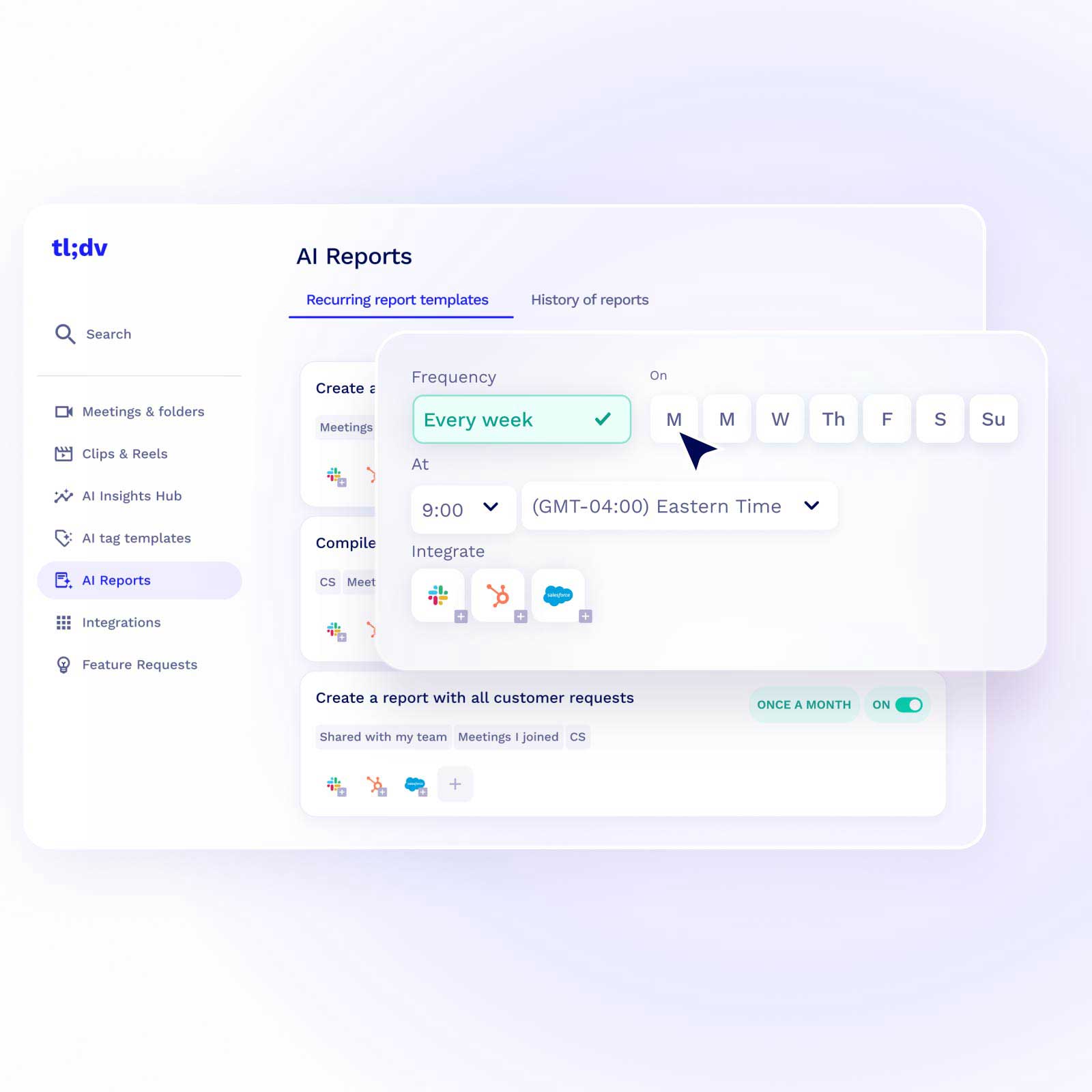
If you’re in the market for Dialpad alternatives that have the power to meet it head-to-head in terms of sales features, you won’t be disappointed here. As with Dialpad, you get sales playbooks (as well as note templates for all your other teams) that you can monitor in your speaker analytics dashboard. All the popular sales playbooks are there, including BANT, MEDDIC, SPIN, and many more. You can edit these or create your own from scratch.
You can even create deep integrations with your CRM systems by creating a template that corresponds to the fields of your chosen CRM so that the information can be ported over automatically.
tl;dv’s speaker analytics dashboard provides information on talk-to-listen ratios, monologue lengths, filler words used, and more. It’s a great way to monitor your sales team performance and choose focus areas to work on. You’ll also get objection handling tips here to help you naturally transform conversations into conversions.
tl;dv also integrates with 5,000+ tools so you can sync your meeting notes and conversational intelligence with a vast array of other platforms. This helps to streamline workflows and save precious time that could be spent elsewhere.
tl;dv Pros
- Free AI Integration: tl;dv leverages first class AI to provide summaries, notes, and automatic speaker detection.
- Free and Instant Translations: tl;dv’s transcriptions are available in more than 40 languages for Zoom, MS Teams, and Google Meet. It also has a localized platform in 7 languages, making it an excellent choice for multinational teams.
- Incredible Free Plan: Unlimited free video recordings and transcriptions of Zoom, MS Teams, and Google Meet calls.
- Easy to Use: tl;dv’s sleek design makes it super easy for beginners and experts alike.
- Multi-Meeting Intelligence. Schedule recurring reports to get insights from multiple meetings at once, delivered straight to your inbox.
- Sales Coaching. Upgrade your sales team using insights from your sales calls. Improve objection handling and use templates or custom playbooks to personalize your coaching strategy.
- Timestamps and Tagging Features: Timestamp your meeting highlights to quickly jump back to specific moments in the call. It also features the ability to tag colleagues at specific meeting moments so they get an email with a link straight to their inbox.
- 5,000+ Integrations: Push timestamps and meeting clips directly to Notion, Slack, HubSpot, Salesforce, and 5,000+ more.
- Custom Meeting Templates. Create and edit meeting templates so that the AI takes notes exactly how you want it to. Sync these directly with your CRM of choice by creating a template with the CRM fields you wish to fill.
- Create Clips and Highlights: Scan your library and make clips and highlight reels to condense insights.
- Intuitive Library: Search your meetings library for keywords in transcripts to quickly find what you’re looking for.
- Concurrent Meetings. tl;dv’s AI can record and transcribe multiple meetings at the same time, making your life easier if you’re double (or triple+) booked.
tl;dv Cons
- Compatibility: Not yet available for Webex or BlueJeans.
- No Revenue Intelligence. While tl;dv provides ample sales coaching features, it doesn’t have any revenue intelligence features yet.
- Limited Dialing Features. tl;dv is built more for warm sales calls than cold calling. It doesn’t offer power dialing, business numbers, or autodialing features.
Pricing
tl;dv has an epic free plan that provides you with unlimited call recordings, transcripts, and AI summaries. It includes lots of other limited AI features too, but to get maximum AI power, you’ll want to opt for one of the paid tiers.
The Pro plan costs $18 per user per month. This unlocks 5,000 integrations, unlimited “Ask tl;dv” prompts, and unlimited multi-meeting reports, among other things.
The Business plan costs $59 per user per month and unlocks sales playbook monitoring and AI coaching, AI objection handling tips, and multi-meeting speaker insights.
Depending on which region of the world you’re in, you can get up to a 40% discount on tl;dv’s paid plans!
Free Plan Features
- Unlimited video recordings and transcripts.
- Record Google Meet, Zoom, and MS Teams calls.
- Transcribe in 40+ languages
- Unlimited AI moment summaries
- 10x AI Meeting Notes
- 10x Ask tl;dv AI
- 10x AI Multi-Meeting Reports
- Slack, Email, and Calendar integrations
- Set timestamps and highlights
- Create and share clips
- Automatic speaker recognition
- 3 monthly uploads
For the full details of all of tl;dv’s plans, see here.
tl;dv vs Dialpad
These two tools are slightly different in that tl;dv is more for meeting intelligence on video calls, whereas Dialpad tends to be more focused towards dialing and cold calling. There is some overlap as tl;dv can integrate with dialers, and Dialpad does have some meeting features.
However, if either one of these things is vastly more important than the other then you’re better off choosing the tool that focuses on what you need. For example, tl;dv’s AI meeting assistant features blow Dialpad out the water. Plus, you can get started with unlimited recordings (video and audio), unlimited transcriptions, and unlimited AI moment summaries for free!
Dialpad, on the other hand, is the better choice if you’re fully focused on the cold calling side of things. It has power dialers, autodialing features, and business numbers to use for this very purpose.
If you’re looking for a more versatile tool that can do a bit of both, tl;dv comes out on top here. It can be used by all your different teams, so it isn’t just limited to Support and Sales (which both need different plans on Dialpad). tl;dv can also be used by UX research, Product, HR, and more. It’s also a better tool for company onboarding.
2. Apollo

Apollo is one of the best all-round Dialpad alternatives. It’s a comprehensive suite of sales tools that take the user from lead generation all the way to closing and customer success.
Like Dialpad, Apollo provides a business number which enables call logging, recording, transcription, and more. Additionally, Apollo’s database contains contacts of hundreds of millions of people and businesses so you can always find promising leads.
You can set voicemails, manage your dialer preferences, and even call as a team in power hours. Joining as a team can also be beneficial for sales coaching from the sidelines or onboarding. Finally, you can save and share your call recordings to celebrate victories or reflect on takeaways to always keep improving.
Apollo also works as an AI meeting assistant to gather conversational intelligence. It records, transcribes, and summarizes your sales calls so you can focus on the important thing: rapport building. Call summaries get granular about the outcomes, next steps, and any objections. Apollo also has an AI chatbot that you can ask open-ended questions to gather more information about your prospects and sales calls.
However, as we mentioned earlier, Apollo is a comprehensive tool. These features are just scratching the surface. It can also scrape LinkedIn for contacts, generate follow-up emails, and set up email campaigns.
Nearly 40% of SaaS applications duplicate other solutions or are otherwise going unused. Apollo is so big that it will likely make your other sales tools obsolete. This is a good way to cut down on the amount of sales tools you’re using if you want to streamline and narrow your toolkit.
Apollo Pros
- Personalized and automated: It’s a sales engagement powerhouse that offers email tracking, cadence automation, and personalized outreach.
- Accuracy: Apollo offers accurate and up-to-date information about companies and contacts.
- Large Database. Apollo has hundreds of millions of people and business numbers.
- All-in-one: Campaign management is possible from within the platform.
- Integrations: Tons of integration options, including various CRM platforms, as well as plenty of sales and marketing tools.
- Conversational Intelligence. Apollo records, transcribes, and summarizes your sales calls, providing juicy insights to help you close more deals.
- Powerful Dialing Features. Dial from your Apollo business number and record all your calls in the process.
- Join Calls as a Team. Collaborate or coach from the sidelines.
- Free plan: Great free plan to try out the tool.
Apollo Cons
- Complex: It’s a complex tool and can be difficult to use if it’s your first foray in the data enrichment tool world. Your team might need training to master it.
- Very Sales Oriented. If sales is just one part of why you need an AI meeting assistant, Apollo might be too far in the one direction.
- Very Advanced. If you want a simple tool that transcribes and organizes your meeting notes, then Apollo might be too advanced for your needs.
Pricing
Apollo has four different subscription tiers: Free, Basic, Professional, and Organization.
The Basic plan starts at $49 per user per month and it unlocks 60,000 credits per year (to access emails and phone numbers for outreach), data enrichment, email open and click tracking, as well as email integrations and more.
The Professional plan will set you back $79 per user per month and unlocks 120,000 credits. Here, you’ll get advanced reports and dashboards, email reply and meeting tracking, 300k monthly words for AI emails, dialers, 4,000 minutes of call recordings, track website traffic, and a broad suite of integrations to improve workflows.
Finally, the Organization plan costs $119 per user per month and unlocks 180,000 credits a year. This improves the limits of all the Professional plan’s features, and adds some new ones, including intent filters, call transcripts and international dialers, advanced security configurations and more.
Free Plan Features
- 1,200 Credits / year
- Sequence Automation (2 Active Sequences)
- Basic Filters
- Buying Intent (1 Intent Topic Limit)
- AI-Assisted Email Writing (5k words monthly limit)
- Send 250 Emails/day
- Chrome Extension
- Deals
- Limited API Access
- Advanced Salesforce & HubSpot Integration (Bi-Directional)
- Custom Stages
- Task Manager
- Workflows (2 Workflows Limit)
- Conversations (150 minutes recording limit)
- Track Website Visitors (track up to 10 new visitors daily)
- Power-up runs (100 per seat/month)
Apollo vs Dialpad
Apollo does everything Dialpad does and more. It is, however, more targeted towards sales teams than support or anything else. It helps your sales team along each and every step of the customer lifecycle, from lead generation all the way to deal closing.
If you’re in the market for a comprehensive sales suite that can do just about anything you need, then Apollo is right for you.
However, while Apollo does have dialing features, that isn’t its speciality. Unlike Dialpad, where dialing is the core focus. If you want top-of-the-range dialing, power dialing, autodialing, and all the more advanced dialing features, then perhaps Apollo isn’t the right tool for the job.
3. MiiTel
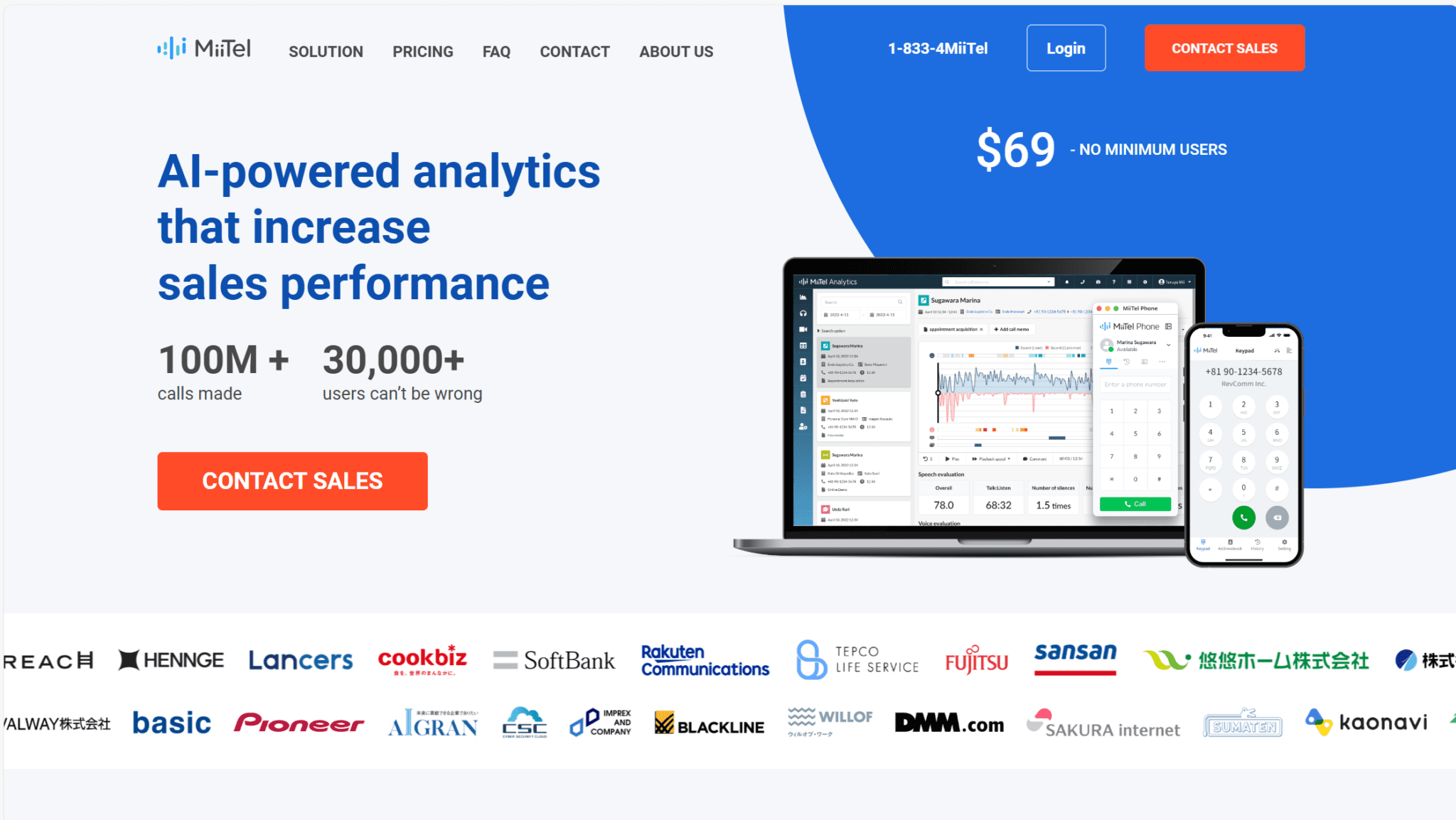
MiiTel is a powerful Dialpad alternative as it has the dialing features and the sales focus locked in. It aims to help you increase sales conversion rates through automatic transcription, conversation and data analysis, CRM and SFA integrations, and even emotion analysis. It helps you understand your sales calls on a deeper level, providing insights that can lead to new strategies that work.
RevCom, the parent company of MiiTel, was the only Asian start-up to be recognized by Forbes as one of the top 50 AI companies globally in 2023. They created MiiTel to enhance business communication, particularly in sales, customer support, and marketing.
MiiTel has a broad suite of features, including real-time AI analysis. Like tl;dv and Apollo, it can provide you with statistics about the call, such as your sales rep’s talk-to-listen ratios, but it can also track conversational patterns and emotional tone. It also evaluates calls and identifies areas for improvement.
Like all the best Dialpad alternatives, MiiTel has a bunch of great integrations that make automating workflows simple. MiiTel works seamlessly with CRMs like Salesforce and Hubspot, but it can also sync with Slack, Notion, and other popular documentation tools.
One of the interesting things about MiiTel is its primary market: Japan. It has an ever-growing reach but it’s certainly stronger on its home continent. Dialpad has stronger global coverage, especially for Western teams.
MiiTel Pros
- Sentiment Analysis. The AI will analyze the speaker’s emotional tone, giving you even deeper insights into sales psychology.
- Comprehensive Analysis. MiiTel’s dashboard allows you to review your sales reps’ overall performance.
- Good Integrations. You can automatically sync your meeting notes to your CRM.
- Ease of Use. The learning curve for MiiTel is minimal so your team should pick it up in no time.
- Post-Call Analysis. After each call, MiiTel analyzes and scores your performance, helping with sales coaching and team development.
MiiTel Cons
- Niche Geographical Focus. As a sales dialer, MiiTel excels in Japan, and to a slightly lesser extent, Asia. It may lag behind Dialpad and other competitors for European or American markets.
- No Video Conferencing. Unlike Dialpad, MiiTel only focuses on dialing. There is no video conferencing option.
- Inaccurate Transcripts. MiiTel’s transcripts are good enough, but they’re not the best. This can also impact the depth of the insights received.
- One Price Fits All. While a single price for the entire platform could be great for teams that will maximize its use, those who will only use a few features may feel like they’re not receiving enough value for money.
Pricing
MiiTel saves you a headache with its simple one price for everything. It’s $69 per user per month and this basically unlocks everything that MiiTel offers. However, what’s a little bit baffling is that despite the fact there is only one plan, you still need to contact a sales team before you can start.
This feels like an unnecessary hurdle that prevents users from getting started immediately.
MiiTel does offer a free trial with no credit card required.
MiiTel vs Dialpad
Both Dialpad and MiiTel are powerful tools for bolstering a sales team. They provide data insights that can change the game. MiiTel is great for teams venturing into Asian, especially Japanese, markets, but it may not be a great fit for teams that aren’t targeting Asia at all.
MiiTel’s sentiment analysis feature helps you understand your customers on a deeper level than if you were to just use Dialpad. Additionally, MiiTel’s pricing is as plain as can be, despite not being for everyone, whereas Dialpad’s pricing structure is a bit confusing.
However, Dialpad has video conferencing features that assist you on those warmer calls. It also has a broader global reach and the advanced features can be more tailored to your needs.
4. Aircall
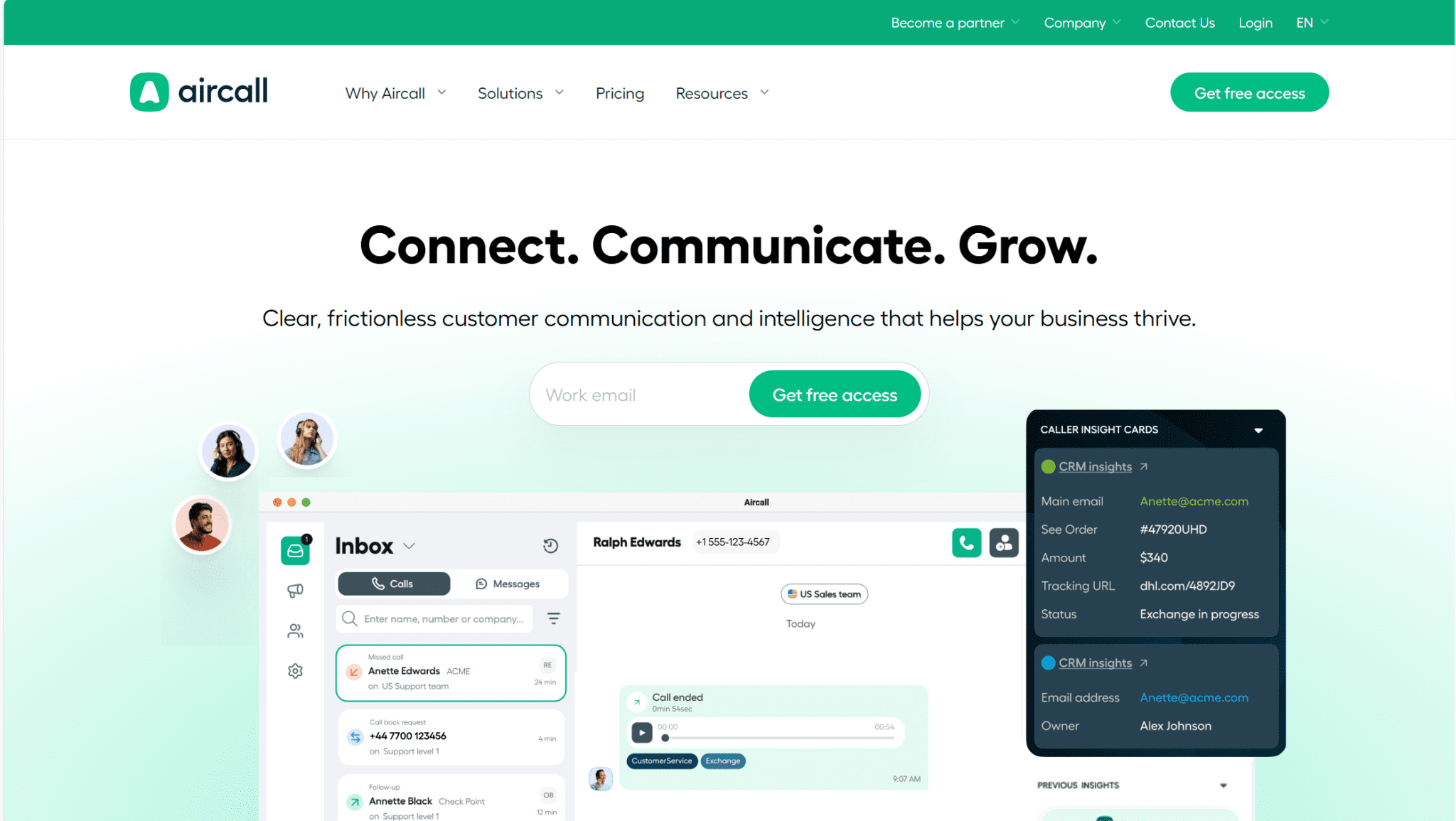
Aircall is another cloud-based call center and phone system that can rival Dialpad. Its main goal is to assist sales teams in creating an environment for seamless communication with the customer. In short, it wants you to understand each other on a far deeper level so that it’s easier for your reps to close sales.
Aircall helps you move quickly. You can get all your integrations set up in a couple of clicks. From there, your meeting notes will automatically be sent to your other work tools, like CRMs or task management apps. It’s also super simple to get started with adding numbers too.
As with the other Dialpad alternatives, Aircall has a real-time analytics dashboard so managers can understand what’s working and what’s not. It comes stocked with features for helping you coach better and improve your overall sales and support performance.
That brings us onto Aircall’s stance in regards to the customer lifecycle. It doesn’t just want you to focus on sales and closing deals. Aircall also wants to be there to help with your support teams too. Customer Success teams can use Aircall to foster clear communication channels with customers, as well as track interactions to improve support.
Like with MiiTel, Aircall has sentiment analysis that it can use with its conversational intelligence to generate deeper insights. Its transcripts are fully searchable too, making it super easy to find what you’re looking for.
Aircall Pros
- Automation and Integrations. It seamlessly integrates with all your favorite CRMs and helpdesk tools.
- Real-time Analytics Dashboard. Managers will have a field day with the analytics dashboard, which helps train teams and enhance productivity.
- Powerful Conversational Intelligence. From AI summaries to tracking trends across calls, you’ll be able to make data-driven business decisions with clarity.
- Sentiment Analysis. Dive into the emotional tone and body language that sits behind the prospects’ words.
- Power Dialing. Automate and speed up the dialing process so your reps can get more done in less time.
Aircall Cons
- Bad Customer Support. For an organization that aims to bring their clients closer to their customers, they sure do get a lot of complaints about the customer support.
- Problems with Cancellations. This is always a bit of a red flag. Many users have reported problems with cancelling their plan, some claiming that Aircall is outright deceptive.
- Connection Issues. Lots of users claim that the dialer struggles to connect or that only one side can be heard.
Pricing
Aircall seems to have taken a leaf out of Dialpad’s pricing book. They have three main plans, a free trial, and two separate add-on licenses which you can’t use in the ordinary plans. It’s a bit more confusing than it needs to be, but that’s life.
It does not have a free forever plan.
Aircall’s Essentials plan costs $30 per license per month. This provides 100s of integrations and API access. You’re allowed unlimited calls within your specific region (USA and Canada for example), you can also send and receive SMS, and make unlimited simultaneous outbound calls. This plan also provides a softphone for desktop, Android, and iOS.
The Professional plan will set you back $50 per license. This includes a Salesforce integration, manual tagging, advanced analytics and live monitoring. It also nets you more advanced sales features like power dialers and voicemail drops. Here, you’ll also gain access to advanced support features like queue call back and smart routing.
Finally, there is a Custom plan where you’ll need to reach out to Aircall’s team and strike up a personalized deal.
As for the add-on licenses, if you want to get conversational intelligence and record and transcribe your calls, you’ll need the Aircall AI add-on. This is $9 per license. Similarly, if you want the Analytics add-on, you’ll need to fork out an additional $15 per license.
Aircall vs Dialpad
Dialpad and Aircall are similar tools for similar markets. They both specialize in dialing and have all the top features, but they also both provide the opportunity to join video calls and record, transcribe, and summarize them.
Aircall is a bit stronger in terms of its conversational intelligence because Aircall’s AI is a little more focused towards the emotional intent of the speakers. This allows it to pick up more information and string together more patterns and trends.
In order to separate these two, it might be best for you to try out the free trial and see which one you and your team prefers.
5. Krisp
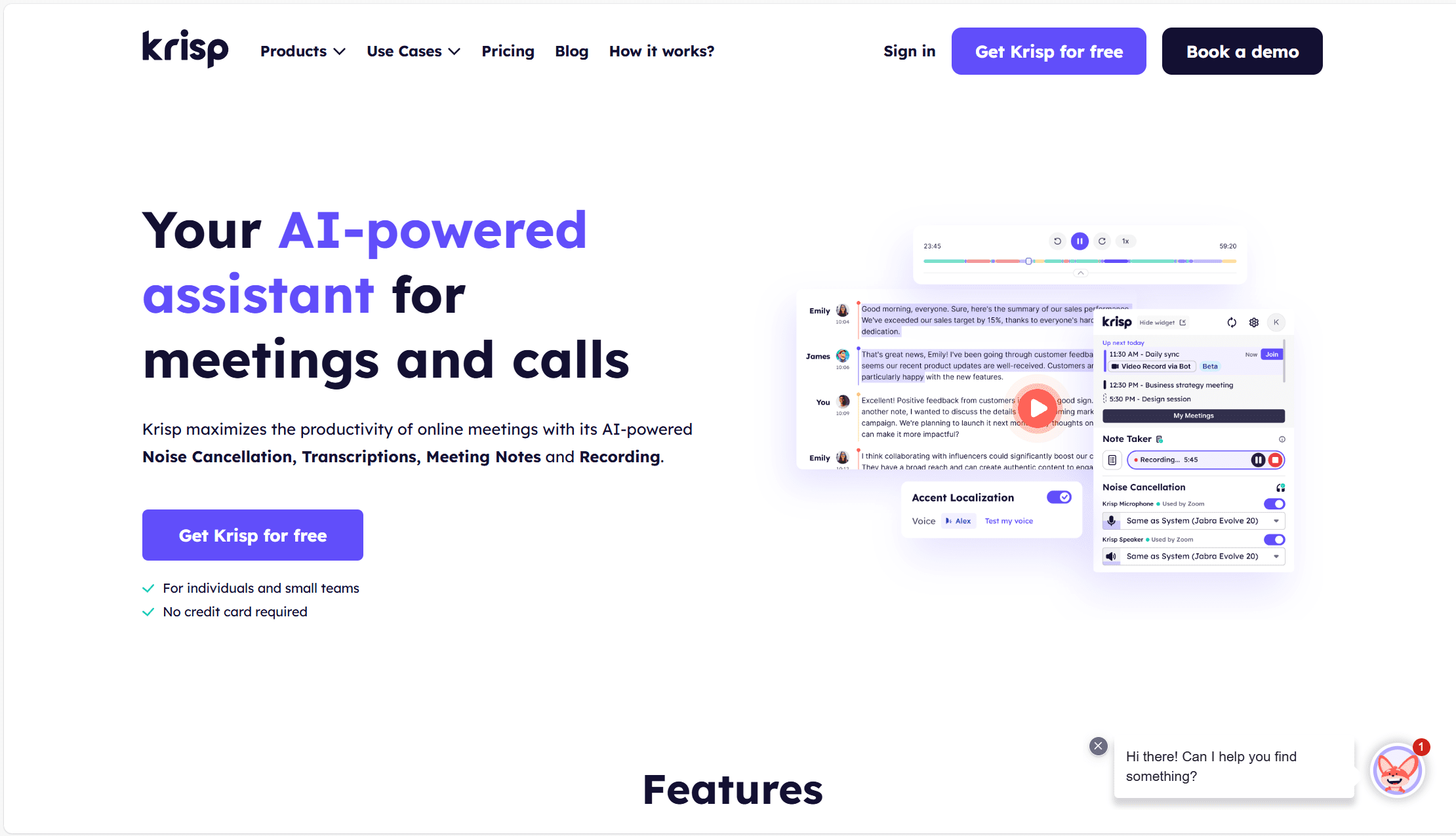
Krisp is one of the most unique Dialpad alternatives. Sure, it records and transcribes your virtual meetings and calls, but it has several stand-out USPs that position it as a powerful player in the dialer game.
However, weirdly enough, Krisp doesn’t come with any dialing features itself. In a way, it’s a false entry to this list as it doesn’t directly compete with Dialpad at all. It works with it. Whether you’re running sales calls or customer support calls (or both), Krisp works with your dialer of choice to maximize your efficiency. Let’s see why.
Firstly, Krisp has AI noise cancellation. This blocks out background noise so that both parties can hear each other perfectly.
Secondly, Krisp offers AI accent localization, which is a fantastic feature for teams with big call centers abroad. If your support staff have accents that are typically difficult to understand for your customers, you can have Krisp’s AI change it into native English in real-time. This is something straight out of a sci-fi movie.
Finally, another mind-blowing feature of Krisp’s comes in the form of live AI interpretation. It doesn’t just record transcripts in multiple languages, it can literally change your language as you’re speaking. Let me rephrase that: It can interpret your words and replace them with words of a foreign language in real-time! It works in 20 different languages so far and it’s well worth it if you’re in global markets and often encounter language barriers.
The other great thing about Krisp is that it slots into meetings as a “smart layer”, so it can join any call or online meeting you have. It doesn’t matter whether you’re using Zoom, MS Teams, Slack, or even WhatsApp, Krisp will transcribe, summarize, and provide notes for your calls. It’s great for those who want a bot-free experience.
For those still on the fence, check out the big names that use Krisp: Atlassian, Sony, even NASA… It’s well trusted by big brands, and there’s a good reason. Its focus on audio quality makes it one of the clearest recorders and most accurate transcription tools on the market.
There are a few drawbacks when it comes to Krisp though. For example, it focuses so much on audio quality that it falls short in the analytical side of things. Krisp’s conversational intelligence leaves a lot to be desired compared to some other Dialpad alternatives, but it’s a great start for those more interested in sound quality and transcriptions. Plus, as it lacks dialer features, you might only use Krisp to partner with a communications platform, which will hopefully provide a better experience in this sector.
Krisp Pros
- AI Noise Cancellation. Drain out any and all background noise so you can focus fully on the conversation.
- Live AI Interpreter. Talk with people from over 20 languages without a problem by inviting your live AI interpreter.
- AI Accent Localization. Improve the accent clarity of your call center team by localizing their accent.
- Bot-Free and No New Hardware Required. Krisp doesn’t require an integration to join a call, it doesn’t enter with a bot, and it doesn’t require new hardware for any of its features.
- Good Free Plan. Krisp’s free plan provides unlimited transcription and some limited versions of other features, including noise cancellation and AI summaries.
- Custom Vocabulary. Krisp has a custom vocabulary so that you can train the AI to accurately record industry-specific jargon.
- Real-Time Meeting Transcription. Krisp provides real-time transcripts that are super easy to edit and share, even during the call.
Krisp Cons
- No Multi-Meeting Intelligence. Krisp’s conversational intelligence is on the weaker side. It cannot identify patterns or trends across multiple meetings.
- No Sales Coaching Features. Krisp doesn’t utilize its feature-set to provide sales coaching features for sales reps.
- Lack of Integrations. While Krisp doesn’t require any integrations to join online meetings, it does need them to sync meeting notes with other tools. It works only with Zapier, providing no native integrations of its own.
- Can Be Unreliable at Times. Some reviewers comment that Krisp can suffer from occasional audio issues.
- No Dialing Features. It doesn’t directly compete with Dialpad. Instead, it can be used as a supplement to Dialpad or one of the other alternatives.
Pricing
Krisp’s Pro plan costs $8 per user per month (when billed annually) and includes unlimited AI Noise Cancellation, AI summaries and action items, as well as 3GB of storage, multi-language support, and the option to record video (with a bot).
The Business plan comes in at $15 per user per month and offers 30GB storage, unlimited integrations, priority customer support, SOC2 report access and SSO.
Free Plan Features
- Unlimited Transcription
- AI Noise Cancellation (60 mins daily)
- Meeting History limited
- AI Summaries & Action Items (2 daily)
- Bot-free recording & note-taking
- Custom Vocabulary
Krisp vs Dialpad
This is an unfair comparison as both tools work better in combination with one another. Krisp isn’t a dialer, it’s an audio enhancer. That includes not just sound quality, but also language interpretation and accent localization. It’s a fantastic software for large call centers to adopt, but it doesn’t directly replace the dialer platforms themselves.
If you’re in the market for Dialpad alternatives because of its weak language support or lack of noise cancellation, perhaps you can try it with Krisp first. Alternatively, you can partner Krisp with one of the other Dialpad competitors from this list to get the same bonuses.
If, however, you’re moving on from Dialpad because your main desire is an AI meeting assistant, then Krisp could be an interesting competitor. It offers an unobtrusive bot-free experience that provides crystal clear transcripts and high quality notes. It can still work as a supplement for stronger meeting assistants (like tl;dv), but it could work to replace Dialpad here if needed.
The Verdict: Which Of These Dialpad Alternatives Is The Best?
This question entirely depends on your reason for wanting to move on from Dialpad. If you can understand what’s pushing you away from Dialpad, you can begin to see which features you might be looking for in competitors.
If you still want the focus to be on dialing, Aircall and MiiTel offer great potential. Similarly, Apollo has dialing features and a whole suite of other sales features for every aspect of the sales funnel.
If language support and accent comprehension are the most important thing then perhaps you need Krisp to partner with your dialer of choice instead.
Alternatively, if you’re leaving Dialpad for something that’s more focused towards being an AI meeting assistant with state-of-the-art conversational intelligence, then tl;dv is your top pick.

